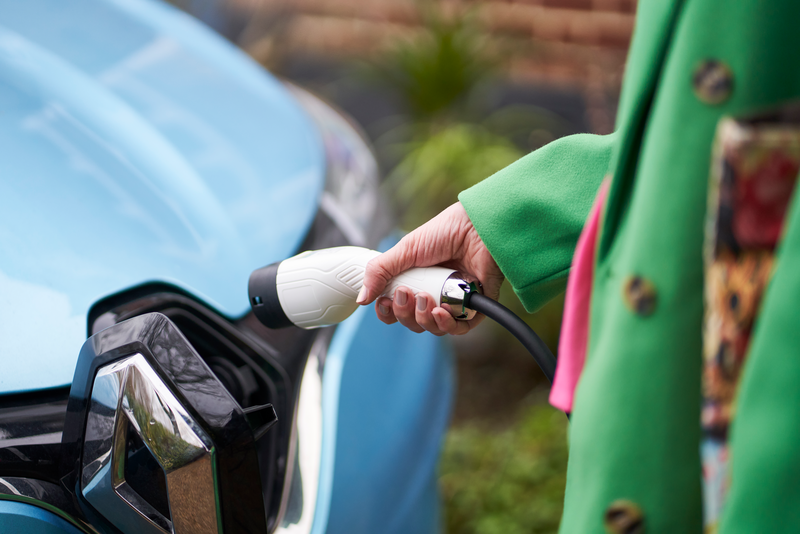Nov 2023
New research shows that two thirds of people would switch to an electric vehicle

New research from OVO shows that almost two thirds (65%) of people would switch to an electric vehicle, with 52% citing the perceived high running costs as the main barrier to making the switch, 50% worried about a lack of access to a chargepoint when needed, and 48% citing high upfront costs.
Yet so far in 2023, our customers with electric vehicles (EVs) on our Charge Anytime rate have saved £3 million compared to the drivers of petrol and diesel cars - who spend an average of £1,225 per year on petrol or £1,572 per year on diesel. The biggest saver to benefit from Charge Anytime so far has seen more than £1,800 cut off their EV charging bills.
Charge Anytime uses intelligent grid technology run by Kaluza to bring the price of charging your electric vehicle down to 3p per mile - that’s three times cheaper than the national average. At the same time, customers can feel safe in the knowledge that the energy they’re using to charge their car is cutting carbon too.
Customers use a mobile app to input when they need their car charged by and our smart technology automatically charges the EV at the greenest times of the day, granting peace of mind to eco-conscious EV owners.
This is just one of the ways we’re showing our customers that the green transition can actually ease the pressure on their wallets.
While offerings like Charge Anytime help EV drivers travel with confidence while reducing their carbon footprint, gaps in the necessary infrastructure are preventing people from making the switch and causing problems for those who already drive electric cars.
48% of people we asked said they’d never switch to an electric car because of the up-front cost. However, this number dropped to 35% when they learned about the possibility of EV leasing, which reduces the initial and monthly costs of an electric car. We’ve recently partnered with Select Car Leasing to ease the running costs as well as the upfront cost, by removing the charging cost completely for the first 6,000 miles driven in electric vehicles acquired through our partnership.
But even if we manage to get all our customers onto EVs, there simply are not enough charge points in the UK, and they are not being built quickly enough, 50% of the public say they were worried about a lack of access to a chargepoint when needed.
As a result, OVO is calling on the Government to share a road map which sets out how it plans to install the required number of EV charge points in public places up and down the country. This mission will open up hundreds of jobs and allow current electricians to begin moving into greener roles, geared towards net zero. OVO also recommends reducing the VAT rate on public charge points to bring them in line from private charge points - from 20% to 5% - so that those who do not have a private driveway or on street parking aren’t penalised and have to pay more to charge their EV.
As well as reducing VAT rates on public charge points, we urge the government to publish its consultation on rebalancing the policy costs between gas and electricity. The quicker we can bring down electricity costs, the easier and more attractive it becomes to switch to electric vehicles.
More EVs on our roads will mean asking more of our energy grid. So we need to see the Government move faster to reinforce the grid, speeding up the addition of new sources of renewable generation and grid connections.
Though the ban on new petrol and diesel car sales has been pushed back to 2035, electric vehicles are still an essential part of the green transition. Many drivers find them quieter to run, smoother to drive and cheaper to service than cars with internal combustion engines. The energy industry is innovating and investing in EVs with new and improved tech, but without clear pledges and targets from the government, demand for EVs drops and it is significantly harder to maintain investment.
Finally, we’re calling for the current post-Brexit trade requirements to be extended to avoid consumers paying the price for switching to electric cars. Without a delay the penalty costs from the EU will hit supply chains, hindering the EV rollout and curbing growing demand. As a nation we’re sleepwalking into missing our 2050 net zero targets by adding unnecessary costs and hurdles to the transition. It’s vital that the UK and EU come together to delay changes ahead of 1st January 2024.
Read our data report to find out more.